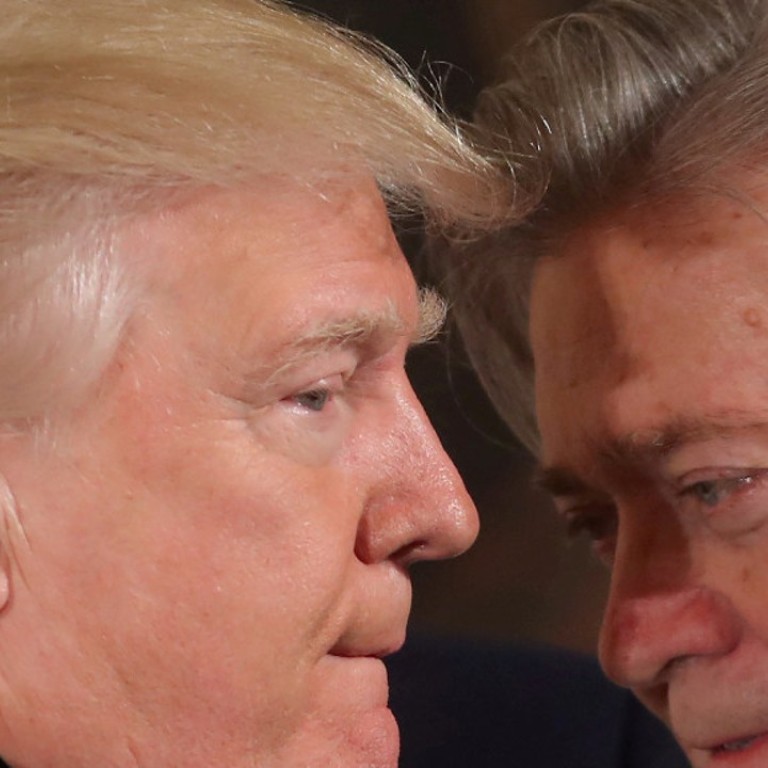
China will ‘remain wary’ of US trade policy despite Bannon’s departure from White House
Beijing will continue to seek stable Sino-US relations, while preparing for the worst, analyst says
Beijing will remain vigilant for signs of aggressive trade practices from the United States despite the departure from the White House of Steve Bannon, the chief strategist who advocated an “economic war with China”, Chinese observers said.
“The departure of Bannon could be seen as a move that weakened [the conservative base], but that would be temporary as there are other hardliners in the White House who support a tough trade stance on China,” said Lu Xiang, a researcher at the Chinese Academy of Social Sciences’ American Studies Institute.
One such is White House adviser Peter Navarro, who leads the National Trade Council and is a firm critic of Beijing’s trade practices.
While it remains to be seen how much influence Navarro will wield, Lu said Beijing was wary of the uncertainty in the Trump administration, which has vowed to be tough on China.
“China will continue to seek stable Sino-US relations, but at the same time prepare for the worst. In the event that things go really crazy we will have counter measures in hand,” he said.
In a lengthy interview published on the website of the liberal magazine The American Prospect, Bannon said the US was locked “in an economic war” with China and that Washington needed to be “maniacally focused on that”.
Dubbed the “Great Manipulator” Bannon has also promised to “go to war for Trump” when he returns to the right-wing Breitbart News as its executive chairman. It is not yet clear who will take over as White House chief strategist, which Lu said leaves even more uncertainty with regards to US trade policies.
Bannon’s departure came just days after Trump endorsed an investigation into allegations that China stole US intellectual property. It was the first trade measure against Beijing since the property tycoon became president and was sanctioned under Section 301 of the 1974 Trade Act, a regulation that China regards as aggressive as it allows the US president to act without consulting the World Trade Organisation (WTO).
China’s commerce ministry said on Monday that the investigation was an act of “unilateral protectionism” and sent the wrong message to the world.
Huo Jianguo, vice-chairman of the China Society for WTO Studies under the Ministry of Commerce, said officials in the Trump administration had already reached an understanding to act tough on China.
“[US Trade] Representative [Robert] Lighthizer has turned the verbal threats into something operational by introducing Section 301, while [Commerce Secretary Wilbur] Ross also believes that aggressive measures are needed in dealing with China,” he said.
“In the long run, we can’t rule out the possibility that, as Bannon said, the US continues to seek to contain China out of fear [it] will overtake the US, especially in the technology sector,” he said.
Other Chinese analysts said that despite the persistent infighting, it was unlikely that the Trump administration would ease its pressure on China, especially as maintaining it could give the US greater bargaining power.
“Trump will continue to show toughness towards China ... and that could add uncertainty to Sino-US relations,” said Wu Xinbo, director of Fudan University’s Centre for American Studies.

